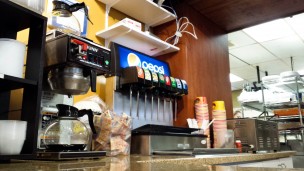
This November, residents of Berkeley, Calif. will be voting on a controversial measure: a distribution tax on sweetened beverages and syrups including soda, energy drinks, and certain kinds of juices and ice teas. Backed by prominent figures such as former New York Mayor Michael Bloomberg, Measure D seeks to reduce the risk of diabetes, obesity, and tooth decay in children and low-income populations.
Berkeley has become ground zero for the fight against the $76 billion soda industry, which has already defeated a series of similar measures across the country. In California alone, the soda industry has won two victories against bills nearly identical to Measure D. In 2012, Big Soda poured a total of $2.8 million into campaigns against Measure N in Richmond, Berkeley’s neighbor to the north, and Measure H in El Monte, a Los Angeles suburb.
This year, the industry is again showering money on two major opposition campaigns in California, the one in Berkeley and another across the bay in San Francisco. San Francisco’s Measure E proposes a two-cent tax per ounce and requires a two-thirds majority to pass, unlike Measure D, for which a simple majority is sufficient.
This difference in approval processes has made Berkeley the main battleground, even though Berkeley has less than a fifth of the number of San Francisco’s registered voters. Thus far, the soda industry has spent around $21 per Berkeley voter for a total of $1.4 million and $15 per San Francisco voter for a total of $7.7 million, according to the website Berkeleyside.
Berkeley’s reputation as a liberal stronghold, however, could potentially undermine the success of Measure D as a bellwether for the anti-soda movement. Should it pass, the bill could be discredited by the soda industry as an outlier, the result of health-crazed Berkeley “hippies” imposing their views upon others.
Nonetheless, the facts themselves are clearly on Measure D’s side. Soda is the number one source of added sugar in the American diet, according to a 2011 study in the American Journal of Clinical Nutrition, and has been linked to heart disease, obesity, and diabetes, not to mention cavities. Consumption of these sweetened beverages, and the diseases that result from it, is also disproportionately higher among the Latino/a and African-American communities.
In Berkeley alone, African-American residents are 14 times more likely than white residents to be hospitalized for diabetes. Nationwide, nearly half of all Latino and African-American children born in 2000 are predicted to develop diabetes within their lifetimes if the current obesity trends are not reversed.
With statistics this grim, it’s no surprise that money is flowing into the Berkeley battleground from both sides. While Measure D’s supporters lack the soda industry’s deep pockets, a local grassroots organization, “Berkeley vs. Big Soda,” has raised over $135,000 to date, and Bloomberg recently donated $85,000 to its campaign.
But whether local efforts will be able to dwarf the industry’s millions remains to be seen. Regardless, as Mayor Tom Bates explained to a New York Times reporter earlier in October, Berkeley will undoubtedly be a turning point of some kind in this bill’s trajectory.
“If it can’t pass in Berkeley, where is it going to pass?” Bates said. “Honest to God, if they can stop us here, they can stop us anywhere. And they know that.”


Leave a Reply